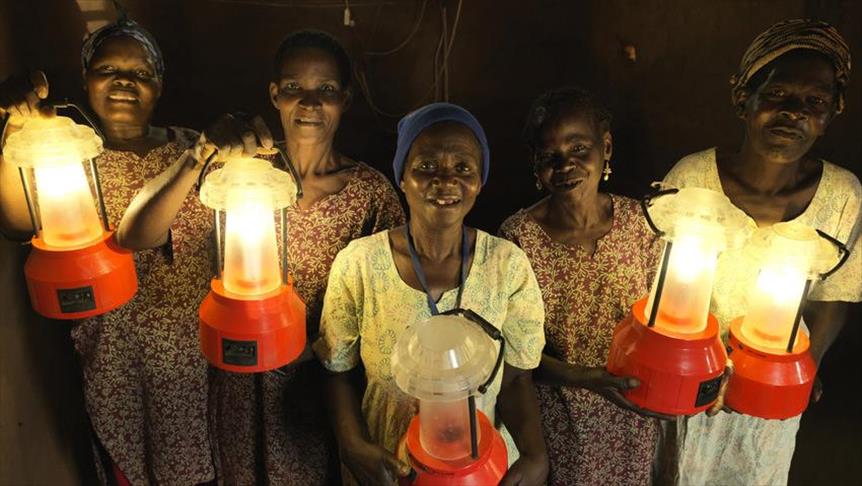In power-starved Malawi �� a landlocked country in southeastern Africa �� solar energy is transforming the lives of people following a trip to India by eight village women.
Nicknamed "solar mamas", the women from the Chimwala village, bordering Lake Malawai �� the ninth largest lake in the world �� have started a rural electrification project that lights up eight villages just outside capital Lilongwe.
These women were trained as solar engineers in India. Their journey from ordinary village women with only primary education to engineers, was funded by a non-governmental organization known as Voluntary Service Overseas (VSO).
In Malawi, an impoverished nation with 53 percent of its population (18.62 million) living below the poverty line, just 10 percent of the country is connected to an energy grid. And for those who are fortunate enough to have access to electricity, there are heavy load shedding schedules.
The solar mamas' project have solved this problem at the community level. Children are now able to attend early morning and evening classes at the village schools, thanks to solar-powered lamps that have been installed in classrooms.
Explaining the transformation to Anadolu Agency, Dines Msampha, a villager in Chimwala, said they received most of the equipment from NGOs and companies from across the world.
“We were using firewood for cooking. We were concerned because we were destroying many trees at an alarming rate. Now we use solar power for cooking at home, to light up the school and to water our farms."
Solar energy has not only reduced indoor air pollution but has given impetus to new trades like running internet cafes, barber shops and others.
Msampha said they also use solar power to operate milling machines to make flour from cereals such as maize, millet, sorghum and wheat. The women, who man solar-powered devices, also earn money, which they use to service the devices.
Malawi Primary Education Adviser Chrissy Bondo acknowledged the women's contribution, saying the government is aware of the importance of clean renewable energy.
"We have evening classes thanks to the solar mamas, which are complementing government efforts," Bondo said. He added the government was planning to connect all schools to the national grid.
“Children are now able to hold iPads and learn things we never had the chance to learn. Instructions are coming from the teachers on the iPads and it is exciting for students," he said.
George Nyangu Chamwala, the area chief, believes that 24/7 electricity has also improved security in the area.
The project also helps farmers water their crops.
"Now the water finds me here at my farm," Jane Azibo said, pointing towards a network of pipes that links to many farms. "We pump water from the ground using solar-driven motors. We water our farms twice a day and store excess in tanks," she added. Earlier, she had to walk over 5 kilometers to fetch water as she could not afford to dig a borewell.
In Malawi, power is available for 6-10 hours a day. Sometimes it blinks and outage can last up to three days.
The government's promise to connect schools, hospitals and households to the energy grid has remained a pipedream.
In December 2018, a parliamentary sitting was postponed due to blackout. Small businesses rely on costly generators while there is no end to the woes in hospitals, where life-saving equipment requires round-the-clock power supply.
According to the 2019 World Bank report, Malawi has abundant untapped solar potential, with an average of 3,000 hours of sunshine per year.
By Magdalene Mukami and Andrew Wasike in Lolongwe, Malawi
Anadolu Agency


